Digital Poster
Myocardium II
ISMRM & ISMRT Annual Meeting & Exhibition • 10-15 May 2025 • Honolulu, Hawai'i

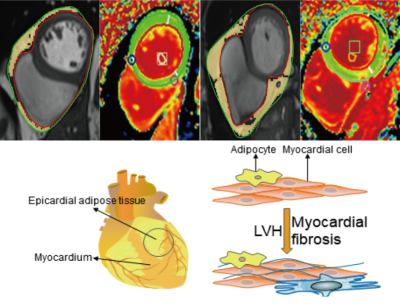 |
Computer Number: 65
4333. Epicardial
Adipose Tissue and Left Ventricular Hypertrophy in Hypertensive
Patients with Preserved Ejection Fraction
R. Zhu, R. Zhu, Y. Gao, B. Li, R. Xue, X. Yuan, X. Wang
Shandong Provincial Hospital Affiliated to Shandong First Medical University, Jinan, China
Impact: Increased EAT volume is independently linked to
LVH in hypertensive patients, contributing to fibrosis and
ventricular dysfunction. Targeting EAT reduction may be an
effective strategy to alleviate LVH.
|
|
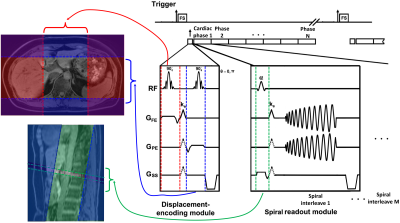 |
Computer Number: 66
4334. Accelerated
2D Cine DENSE for Aortic Strain Imaging: A Preliminary Study
S. Wang, S-F Shih, S. Li, Y. Wu, K-L Nguyen, J. P. Finn, X.
Zhong
University of California Los Angeles, Los Angeles, United States
Impact: This could significantly impact cardiovascular
diagnostics and patient management.
|
|
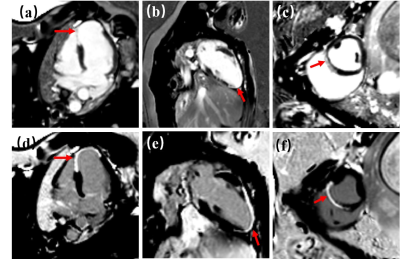 |
Computer Number: 67
4335. Accurate
evaluation of myocardial scars based on late gadolinium
enhancement of gray blood: An animal experimental study
C. He, L. Zhang, J. Zhou, Y. Wu, H. Hu
Sir Run Run Shaw Hospital, Zhejiang University School of Medicine, Hangzhou, China
Impact: The GB-LGE sequence with TI setting was easy to
access and provided improved image quality, demonstrating
great advantages in displaying the fibrous scar of
myocardial infarction and is suitable for clinical promotion
for personalized management of cardiovascular diseases.
|
|
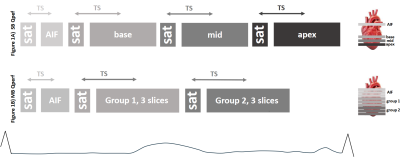 |
Computer Number: 68
4336. Towards
whole-heart quantitative myocardial perfusion using
dual-saturation and multiband acceleration
G. Ferrazzi, C. Galan-Arriola, C. Velasco Jimeno, C. Real,
M. Ghidara, G. López-Martín, B. Ibañez, J. Sánchez González
Philips Healthcare, Milan, Italy
Impact: Combining quantitative perfusion imaging with
multiband techniques expands myocardial coverage while
ensuring precise blood flow quantitative measurements. This
integration represents a significant advancement in
potentially enhancing diagnostic capabilities in
cardiovascular imaging.
|
|
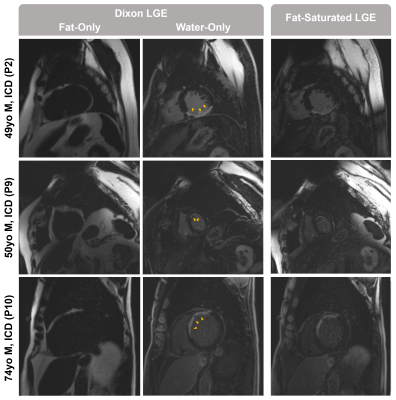 |
Computer Number: 69
4337. LGE
Imaging in Patients with Cardiac Implantable Electronic Devices
at 3T: Comparison of Dixon Fat-Water Separation and Fat
Suppression
T. Wallace, P. Pierce, A. Schulz, F. Ghanbari, J. Rodriguez,
K. Chow, X. Bi, R. Nezafat
Siemens Medical Solutions USA, Inc., Boston, United States
Impact: This study demonstrates that high-quality LGE
images can be obtained in patients with CIED at 3T using a
high-bandwidth dual-echo Dixon LGE sequence, which provides
better fat suppression than conventional spectral fat
saturation.
|
|
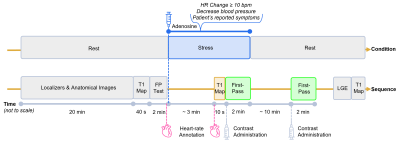 |
Computer Number: 70
4338. Can
spleen T1 mapping be used as a marker of adequate adenosine
response in stress perfusion CMR?
S. Solis-Barquero, V. Aramendia-Vidaurreta, A. Ezponda, M.
Vidorreta, M. Pascual, G. Bastarrika, M. Fernandez-Seara
Clinica Universidad de Navarra, Pamplona, Spain
Impact: This study suggest that splenic T1 changes can
detect splenic switch-off during adenosine stress CMR,
potentially enabling real-time stress adequacy assessment.
However, it raises questions about adenosine’s effects on
splenic perfusion and the link of splenic switch-off to
myocardial response.
|
|
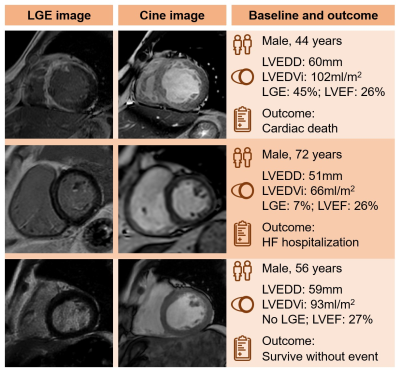 |
Computer Number: 71
4339. Non-dilated
Left Ventricular Cardiomyopathy: Non-ischemic Myocardial Scar as
Predictor of Adverse Cardiovascular Events
M. Jiang, M. Lu
Department of Magnetic Resonance Imaging, Fuwai Hospital, State Key Laboratory of Cardiovascular Disease, National Center for Cardiovascular Diseases, Chinese Academy of Medical Sciences and Peking Union Medical College, Beijing, China
Impact: A larger population with longer follow-up is
warranted to confirm this finding and explore optimal
treatment decisions according to different risk
stratification.
|
|
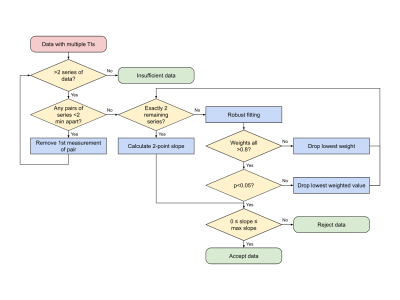 |
Computer Number: 72
4340. Automatic
Inversion Time Tracking for Late Gadolinium Enhancement Cardiac
MRI
E. Peterson, J. J. He, W. Overall
Vista.ai, Palo Alto, United States
Impact: Removing the need for the operator to monitor
Inversion Time (TI) frees them to monitor other aspects of
the scanning process. When TI determination can be scheduled
and acquired automatically it automates and optimizes
critical diagnostic imaging.
|
|
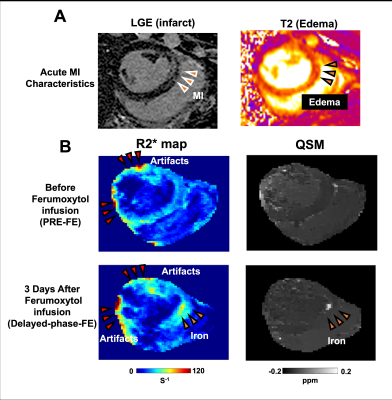 |
Computer Number: 73
4341. Imaging
Delayed Phase Ferumoxytol-Enhancement with Cardiac QSM: a Pilot
Animal Study in Acute Myocardial Infarction
Y. Huang, L-T Huang, x. Guan, A. Malagi, C-c Yang, J. Wei,
N. Bairey Merz, M. Ahmed ZakiAl-Ani, E. Keeley, X. Bi, Y.
Xie, A. Christodoulou, P. Finn, K-L Nguyen, D. Li, R.
Dharmakumar, H-J Yang
Indiana University School of Medicine , Indianapolis, United States
Impact: This pilot study demonstrates HDR-QSM’s
potential for assessing myocardial inflammation, providing a
promising tool to monitor post-MI healing and inform
targeted therapeutic interventions. FDG PET imaging will be
conducted in future studies to validate our findings
|
|
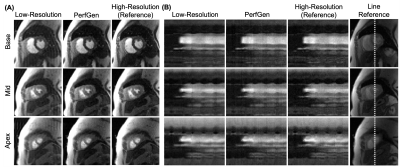 |
Computer Number: 74
4342. Conditional
Diffusion-Generated Super-Resolution for Myocardial First-Pass
Perfusion MRI
C. Sun, N. Goyal, D. Tharp, S. Kumar, T. Altes
University of Missouri-Columbia, Columbia, United States
Impact: PerfGen enables high-quality myocardial
perfusion MRI, complementing GRAPPA or similar methods to
improve imaging speed with real-time displays. This
conditional diffusion-based super-resolution approach
generates multiple contrast phases and complements GRAPPA or
similar methods, further advancing myocardial perfusion
imaging.
|
|
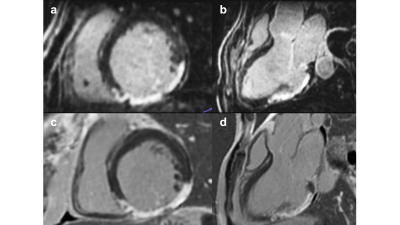 |
Computer Number: 75
4343. Free-breathing
3D high-resolution Dixon late gadolinium enhancement imaging for
scar assessment in chronic myocardial infarction at 3T
L. Lin, Y. Guo, S. Zhao, K. Xu, J. An, M. Schmidt, K-P
Kunze, Y. Wang
Peking Union Medical College Hospital, Beijing, China
Impact: Free-breathing 3D Dixon LGE
imaging with image-based navigation is clinically
feasible, shows agreement with the 2D reference method,
clearly delineates fibrosis and fat infiltration, and can be
performed in a shorter scan time than that of the 2D
sequence.
|
|
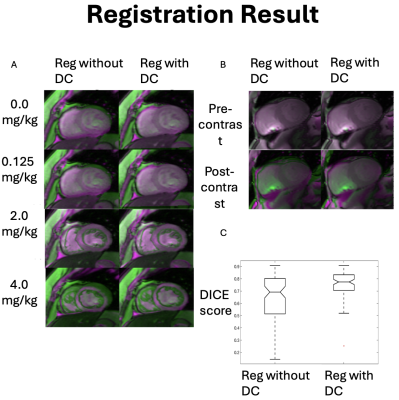 |
Computer Number: 76
4344. Iterative
De-contrasted Image Registration Improves Quantification of
Extracellular Volume and Fractional Myocardial Blood Volume
M. Lu, M. Mahaoudi, K-L Nguyen, Y. Xie
Cedars-Sinai Medical Center, Los Angeles, United States
Impact: Iterative de-contrast preprocessing is an
effective approach for improving the accuracy of group-wise
image registration and quality of parametric mapping in the
myocardium in the setting of contrast enhancement.
|
|
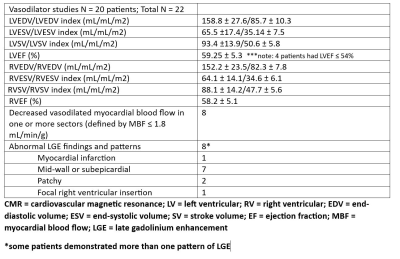 |
Computer Number: 77
4345. Cardiovascular
magnetic resonance vasodilator perfusion in baseline studies of
patients with untreated Chagas disease
W. P. Bandettini, C. Mancini, M. Chen, P. Adames Castillo,
P. Kellman, A. Showler
National Heart, Lung, and Blood Institute, National Institutes of Health, Bethesda, United States
Impact: Cardiovascular pathology is the leading cause of
death in patients with Chagas disease. Early diagnosis of
cardiac involvement is challenging. CMR findings may help to
better understand and identify cardiovascular
manifestations, and the use of CMR quantitative perfusion is
novel.
|
|
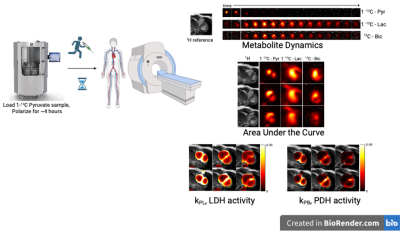 |
Computer Number: 78
4346. Structural
and Metabolic Insights in Hypertrophic Cardiomyopathy Using LGE
and Hyperpolarized 13C Magnetic Resonance Imaging
A. Sinha, X. Liu, S. Tang, N. Dwok, S. Sivalokanathan, J.
Liu, R. Bok, Y. J. Hong, K. Ordovas, A. Bennett Haller, J.
Slater, J. Gordon, R. Abraham, P. Larson
UCSF, San Francisco, United States
Impact: Standard-of-care cardiac magnetic resonance
(CMR) provides information on physical form and function,
but it does not offer metabolic information on tissue and
such information from hyperpolarized 13C
MRI could aid in diagnosis and translation of metabolic
therapies.
|
|
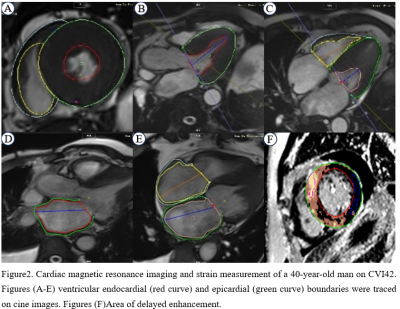 |
Computer Number: 79
4347. Prognosis
of Hypertrophic Cardiomyopathy Patients with Coexisting
Hypertension Using CMR Feature-Tracking Myocardial Strain
Analysis
L. Zhang, Y. Feng, X. Ma, S. Li, Z. Peng, J. Zhai, L. Guo,
K. Ai, X. Zhou
The First Clinical Medical College of Gansu University of Chinese Medicine ( Gansu Provincial Hospital), LanZhou, China
Impact: The indicators obtained by non-invasive imaging
technology are used to evaluate the prognosis of HCM-HT
patients, and to formulate reasonable interventions for the
early clinical stage, which is of great significance for the
treatment and rehabilitation of HCM patients.
|
|
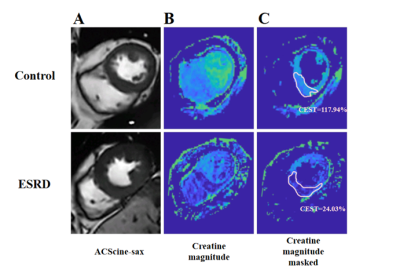 |
Computer Number: 80
4348. Quantitative
evaluation myocardium creatine in ESRD using MR CEST imaging: A
Preliminary Study
S. Jin, K. Jin, R. Jia, K. Xue, T. Liu
The First Hospital of China Medical University, Liaoning, China
Impact: Cardiac MRI CEST is a valuable technique for
quantitatively measuring myocardial creatine levels,
facilitating earlier diagnosis of myocardial energy
metabolism failure, and guiding treatment in ESRD patients.
|
The International Society for Magnetic Resonance in Medicine is accredited by the Accreditation Council for Continuing Medical Education to provide continuing medical education for physicians.